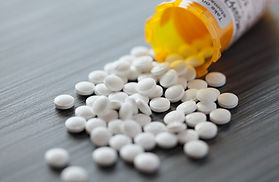Sugar ---------------- A sweet start - A bitter ending



Diabetes:
Over 30 million Americans are overweight or obese. All of them are at risk for developing diabetes. Unfortunately, almost half of them are undiagnosed. Diabetes does not develop overnight. In fact, vast majority of times, a sequence of events leads to pancreatic fatigue (loss of pancreatic function and it's ability to regulate blood sugar) diabetes and then complications of diabetes.
Diabesity:
Diabesity is obesity with propensity to develop diabetes. Although obesity is a major risk factor, not all obese people develop diabetes. Major risk factors are genetic predisposition, continued consumption of foods which cause pancreatic fatigue such as refined carbohydrates and sugars and lack of exercise.


Ways to improve insulin sensitivity and lower the risk of developing diabetes:
-
Avoid refined carbohydrates and sugars.
-
Maintain a healthy weight.
-
Adopt a routine of fasting to lower insulin levels.
-
Exercise at least 5 days a week.
-
Know your genetic predisposition if possible. Over 40 genes contribute toward development of diabetes. When genetic testing is not feasible, reviewing family history can provide fair amount of information in terms of genetic predisposition.
-
Avoid toxins which can cause insulin resistance.
-
Develop a good sleep hygiene. Sleep disorders can cause a rise in cortisol levels which can cause insulin resistance.


Complications of Diabetes:
Diabetes is a metabolic syndrome. High blood glucose levels on a long term basis give rise to Advanced Glycation End products (AGEs). This results in a variety of complications including,

Diabetes monitoring and management:
Diabetes management requires discipline and dedication. In order to keep disease in check and reduce risk for long term complications, following labs and tests should be performed.

WHAT ZONE ARE YOU?
From the table below, determine what zone you are in:

Diabetes Action Plan






